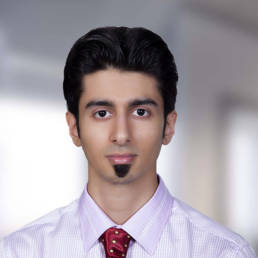ENAI Working Group
Academic Integrity Surveys
The working group focuses on the development of academic integrity surveys and academic integrity monitoring tools.
Members
- Alireza Salehi Nejad, University of Tehran, Iran (head)
- Sultan Tutku Budak-Ozalp, Mugla Sitki Kocman University, Türkiye (deputy-head)
- Ana Cristina Veríssimo, University of Porto, Portugal
- Inga Gaižauskaitė, Lithuanian Centre for Social Sciences, Lithuania
- Irene Glendinning, Coventry University, United Kingdom
- Laura Ribeiro, University of Porto, Portugal
- Lorna Waddington, School of History, University of Leeds, United Kingdom
- Sabuj Bhattacharyya, Institute for Stem Cell Science & Regenerative Medicine, India
- Shiva Sivasubramaniam, University of Derby, United Kingdom
- Sonja Bjelobaba, Uppsala University, Sweden
Past members:
- Franca Marino, University of Insubria, Italy (2017-2022)
- Salim Razı, Canakkale Onsekiz Mart University, Türkiye (2017 - 2022)
- Tomáš Foltýnek, Masaryk University, Czechia (2017 - 2022)
- Zeenath Reza Khan, University of Wollongong Dubai, United Arab Emirates (2017-2022)
Motivation
To promote and uphold academic integrity, as well as to foster a respectful culture among the institutional community, educational institutions need to develop coherent policies. At the same time, it is important to regularly monitor how academic integrity is perceived and practiced both at the institutional and individual level. Furthermore, international comparative perspectives on the status and development of academic integrity can provide a solid reference point when striving for excellence or looking for solutions.
Activities
A set of on-line Academic Integrity Self-Evaluation Tools, developed as part of the ENAI project, is currently available for use via the ENAI web site. The surveys are targeted at different stakeholders within higher education institutions including students, teachers, researchers, and managers. We aim to continue to expand the scope of applicability of the tools in consideration of different contexts (for example: for use in various educational and research settings; or add to the language versions).
The working group intends to explore ways of allowing access to different tools and the resulting responses. By doing so, we aim to make the results comparable with each other so that it would be possible to interpret cross-cultural differences related to the perception of academic integrity.
We are also keen to exchange experiences of researching academic integrity, looking into advantages and disadvantages of using surveys and other methods of data collection as well as research designs.
We offer our support in areas such as (but not limited to) research methodology, survey tool development, research ethics related questions as an advisory team for ENAI research projects.
Academic Integrity Self-Evaluation Tools
Openly accessible on-line Academic Integrity Self-Evaluation Tools for students, teachers, researchers, and institutions.
Documents
These materials are available under the CC-BY 4.0 license, which gives you the right to share and adapt these materials. You are obliged to acknowledge the source and may not restrict the license for further usage.
- Policy Brief for Students’ Self-evaluation Tools (June 2019)
- Policy Brief for Academic Integrity Self-evaluation Tools (August 2019)
- Academic Integrity Self Evaluation Tools Report (revised version, May 2020)
- Policy Brief (SK) / Sebahodnotiace nástroje pre akademickú integritu (August 2019)
- Policy Brief (SK) / Akademická integrita – sebahodnotiaci nástroj pre študentov (June 2019)
Conference Material
- Workshop on Researching Academic Integrity_presentation (June 2021)
- Workshop on Researching Academic Integrity_recording (June 2021)
- Webinar “Good Teaching Practices to Promote Academic Integrity” (EAIW, 2021)
- Workshop on Academic Integrity Self-Evaluation tools (2020)
- Workshop on Academic Integrity Self-Evaluation tools_voice recorded (2020)
- Workshop on Surveying Academic Integrity: Methodological Issues and Lessons Learned (June 2019)
- White board view of the discussion during the Workshop on Surveying Academic Integrity: Methodological Issues and Lessons Learned (2019)
All ENAI members are encouraged to submit any cases related to innovative methods or issues with their primary data gathering (particularly, the ethical aspects) that would be discussed in the virtual meetings among the participants.
ENAI Working Groups
All groups are open to ENAI members and supporters, as well as anyone else who wants to contribute to the group activities. Anyone who is interested in joining any of the working group, is invited to contact the head of the group.



